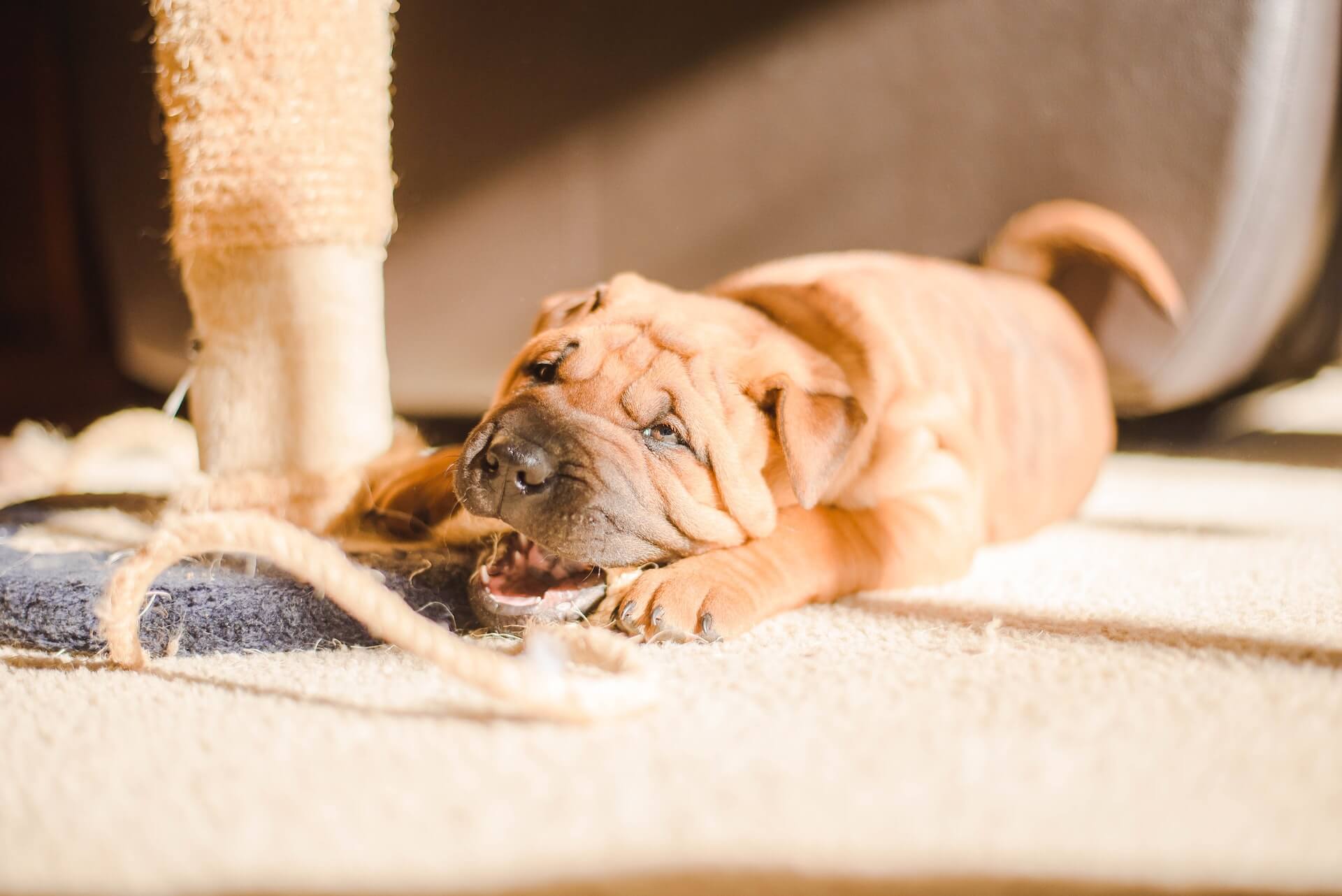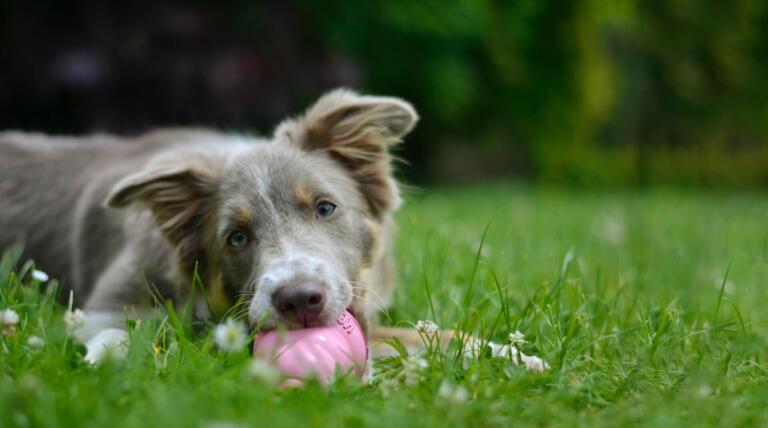A puppy has a teething period much like babies have and you will surely notice when the dog teething period begins or is already unfolding. This period of teething is quite difficult to deal with, especially if it’s your first time caring for a puppy.
You might find yourself thinking about how to prepare for this teething period and what exactly you need to do. There are some things you can do to help your dog go through this period. Caring for a puppy is a difficult period to begin with, and teething is just another thing to add to that list of responsibilities.
What is dog teething anyway?
The term itself should explain what it is but it’s not as simple as we might think compared to humans. Yes, it does have to do with their teeth growing, but it’s not the same as human babies.
You usually get a puppy at 8 weeks old and this means they already have their baby teeth grown. When these teeth begin to fall out to let adult teeth grow, this is the teething period you will have to deal with.
Why is dog teething such a big deal?
With all the many other concerns you have when caring for a young puppy, teething might seem a relatively simple one. But you will find yourself at the receiving end of some sharp teeth. As your puppy is still learning basic training they will not know how to be gentle with play biting.
Puppy teeth are razor sharp and so you may suffer some scratches and find some household items that your pup destroyed. The reason that your dog attacks everything in sight is so that it can manage pain and discomfort.
It’s also a normal behaviour that dogs generally exhibit. Grabbing things with their mouth is the only way they can in fact carry objects around. They also learn about the world like this, as they understand the feel or taste of their toys, food or carpet.
When will dog teething begin?
When your dog’s deciduous teeth start falling out and the adult ones begin coming in, this is when teething begins. This process will last up to the age of six months, but it will depend on the breed of your dog. For some, it can last longer so you will need to be prepared.
12 weeks is about the time that the deciduous teeth start falling out, and it will be a painful process. The timeline of this period is dependent on each breed so it may take longer than expected initially.
What is there to do during this process?
If dog teething is so difficult, then what can you do about it? Waiting it out is the most usual thing to do, but you can make life easier for your pet. You can even make life easier for your household items as you may spare them the chew marks.
A few things can help and make the entire process go smoothly. Try a few to see which ones work best.
Chew toys
To ease the pain during teething, you can make use of dog chew toys. Specifically designed for dogs, chew toys come with different textures and firmness. There are specific kits for puppies that come with 2 or 3 different types of textures.
Some chew toys are made with nylon, so they provide a long-lasting chew for your pup. Other chew toys are entirely edible so your puppy can consume them. Even edible chews come with different textures and firmness so you must choose according to age.
Teething gel
There are teething gels that will help soothe the pain quite nicely. This is a solution that can be perfect for many. You thus use this gel and in the meantime get your dog used to having their teeth checked in addition to soothing teething.
Don’t remove their teeth
It may be a given but don’t yank their teeth out. You may see a tooth barely hanging on to dear life but leave them to fall on its own. You can encourage your dog to chew on a toy and so it will fall on its own. You never know how you will hurt your pup and it’s already a difficult period for them.
Additional tips
Don’t give your puppy bones to chew on. This goes for adult dogs as well. While it may seem the norm to have a dog gnaw on a bone, it can be detrimental to them. Shattered pieces of bone may cause damage to their mouths and even insides, so be cautious. There are better chewing options out there.
You could also be thinking about whether to brush your puppy’s teeth while they are still teething. It’s not an impossible task but it can be a little difficult. For one, you could irritate their gums, and maybe even dislodge loose teeth, which you should not do.
In conclusion
Dog teething will be a hard period to deal with. Even with the discomfort that your puppy will exhibit, this period will pass. There are some things you can do to help your puppy go through this hard time.
Once all their teeth have finished coming in you can breathe a sigh of relief as the chewing will also start to subside. You will still need to provide them with chew toys, but you can now use harder chews without great risk to their health.



2 Comments